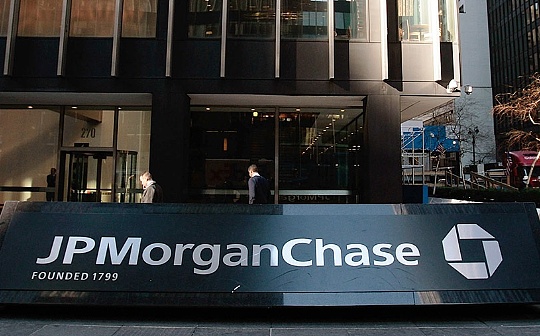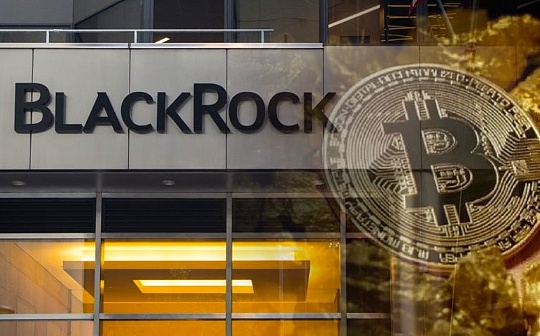Kraken enters the stock tokenization market, why are exchanges crowding in to seize the track?

Reprinted from chaincatcher
05/23/2025·20DAuthor: 1912212.eth, Foresight News
On May 22, the full crypto exchange Kraken announced that it will cooperate with Backed Finance to launch a tokenized stock and ETF trading service called "xStocks", covering more than 50 US listed stocks and ETFs including Apple, Tesla, Nvidia, etc. In recent years, the integration of blockchain technology and traditional finance has been accelerating, and cryptocurrency exchanges are becoming the pioneer of this change. The previous movement to tokenize US dollar and Treasury bonds is now being pushed to US stocks by exchanges?
Strategic expansion
Founded in 2011, Kraken is one of the world's oldest cryptocurrency exchanges and is known for its security and compliance. In recent years, as competition in the crypto market intensifies, Kraken continues to expand its business boundaries. In 2024, Kraken acquired the futures trading platform NinjaTrader and launched more than 11,000 traditional trading services for U.S. stocks and ETFs in some states in the United States.
Tokenized stocks are the conversion of equity in traditional stocks or ETFs into digital tokens through blockchain technology, each token represents a part of the ownership of the underlying assets. These tokens can be traded 24/7 on the blockchain, breaking through the trading time and geographical restrictions of traditional stock markets. Kraken's xStocks is based on the Solana chain and plans to be open to non-US customers, covering European, Latin American, African and Asian markets. Backed Finance is responsible for acquiring and custodying the underlying stocks, ensuring that each token is 1:1 pegged to the real assets, and holders can redeem the cash value of the token at any time.
This move is not an isolated incident. In 2025, global crypto exchanges are accelerating their penetration into traditional finance. For example, Bybit recently announced support for USDT to trade 78 global high-quality stock assets, covering tech giants (such as Microsoft, Google), consumer goods companies (such as Coca-Cola) and energy companies (such as ExxonMobil). Users can use the stablecoin USDT to trade, enjoying the advantages of low threshold and high liquidity. Industry trends show that tokenized assets are becoming a bridge between crypto exchanges and traditional finance.
History of FTX and Binance tokenization of US stocks
The concept of tokenized stocks is not a new thing. As early as around 2020, crypto exchanges began to test this field, among which the practices of FTX and Binance are the most representative. Founded in 2019, FTX was once the third largest crypto exchange in the world and is known for its innovative products. In 2020, FTX launched tokenized stock trading, allowing users to trade digital tokens in US stocks such as Tesla and Apple through its platform. These tokens are provided by FTX's Swiss subsidiary Canco GmbH and are pegged to real stocks escrowed by third-party brokers. FTX's tokenized stocks support fractional trading, and users can buy some stocks at a cost of as low as USD, greatly reducing the investment threshold. In addition, FTX also attempts to tokenize ETFs, such as the SPDR S&P 500 ETF (SPY).
However, FTX's tokenized stock business is limited by compliance issues and market volatility. In November 2022, FTX went bankrupt due to improper fund management and fraud scandals, and its tokenized stock business was terminated. Nevertheless, FTX's attempts demonstrate the market demand for tokenized stocks, especially among emerging markets and young investor groups.
In 2021, Binance also launched tokenized stock trading, the first batch of stocks including Coinbase, Tesla and other stocks. These tokens are settled in Binance stablecoin BUSD and support fractional transactions, aiming to provide global users with convenient investment channels for US stocks. However, Binance's tokenized stock business soon encountered regulatory resistance. Financial regulators in multiple countries have questioned their compliance, believing that tokenized stocks may bypass the regulatory framework of traditional securities markets. In the same year, Binance announced the termination of the business and focused on core crypto trading.
FTX and Binance experience shows that tokenized stocks are technically feasible, but face challenges in compliance, asset custody and market acceptance. Kraken's launch of xStocks has obviously learned from his predecessors, emphasizing cooperation with regulators and ensuring asset transparency and security through Backed Finance.
Why are exchanges keen on tokenized stocks
Crypto exchanges are deploying tokenized stocks, which are both technologically driven and market and strategic considerations. According to data in April 2025, the total market value of US stocks is approximately US$52 trillion, accounting for more than 45% of the global stock market. Such a huge market share allows many exchanges to seize the traditional financial market in order to expand their user base. The user base of crypto exchanges is mainly young investors with high risk appetite, but the scale of traditional financial markets far exceeds that of crypto markets. Tokenized stocks provide an entrance for exchanges to enter traditional finance, attracting traditional investors who are interested in stocks and ETFs. For example, Kraken's xStocks is aimed at non-US customers and accurately targets the investor group in emerging markets with strong demand for U.S. stocks but limited by traditional channels.
In addition, the core advantages of blockchain technology lie in decentralization, transparency and efficiency. Tokenized stocks use blockchain to achieve 24/7 transactions, instant settlement and low-cost operations, solving problems such as limited trading time in traditional stock markets and high intermediary fees. In addition, blockchain supports fractional transactions, allowing small investors to participate in investment in high-value assets, enhancing financial inclusion.
Against the backdrop of fierce competition on crypto exchanges, tokenized stocks have become a weapon for differentiated competition. Kraken's xStocks not only provides trading functions, but also allows users to use tokens as collateral for the DeFi protocol, enhancing the liquidity and application scenarios of assets. This cross-border integration provides users with more diversified investment options and can also consolidate the ecological stickiness of the exchange.
What impact does it have on traditional stock exchanges
The tokenized stock business of exchanges such as Kraken poses certain challenges to traditional stock exchanges (such as Nasdaq and New York Stock Exchange), and also brings opportunities for cooperation and transformation. Trading times on traditional stock exchanges are usually limited to specific periods of working days, and cross-border investment involves high handling fees and settlement cycles. The 24/7 trading and instant settlement characteristics of tokenized stocks directly challenge the operating model of traditional exchanges. Especially in emerging markets, investors may be more inclined to gain U.S. stock exposure through crypto exchanges than traditional brokers.
Faced with the impact of blockchain technology, traditional exchanges are not without countermeasures. Institutions such as Nasdaq have begun to explore the application of blockchain in the fields of securities settlement and clearing. For example, Nasdaq collaborated with R3 to develop an asset management platform based on the Corda blockchain. In the future, traditional exchanges may cooperate with crypto exchanges to launch their own tokenized products, or provide more efficient trading services through technological upgrades.
The rise of tokenized stocks has prompted regulators to revisit blockchain finance's compliance framework. This provides traditional exchanges with opportunities to cooperate with regulators to maintain market fairness and stability by setting industry standards. For example, the recent US SEC enforcement actions on crypto exchanges have eased, showing the regulatory authorities' openness to blockchain technology innovation.
summary
Kraken's xStocks, Bybit's USDT stock trading, and early attempts by FTX and Binance together outline the evolution of tokenized stocks. This trend is not only a product of the integration of blockchain technology and traditional finance, but also a microcosm of the diversified and technologically driven global investment demand. For investors, tokenized stocks provide a more flexible and low-cost asset allocation method; for exchanges, it is a strategic weapon to seize the market and differentiate competition; for traditional stock exchanges, it is both a challenge and an opportunity for technological upgrading and market expansion.
However, the popularity of tokenized stocks still faces multiple tests of compliance, technology and market education. Exchanges such as Kraken need to find a balance between innovation and regulation to ensure asset security and user trust. In the future, with the maturity of blockchain technology and the clarity of regulatory environment, tokenized stocks are expected to become an important part of the global financial market.





 jinse
jinse

